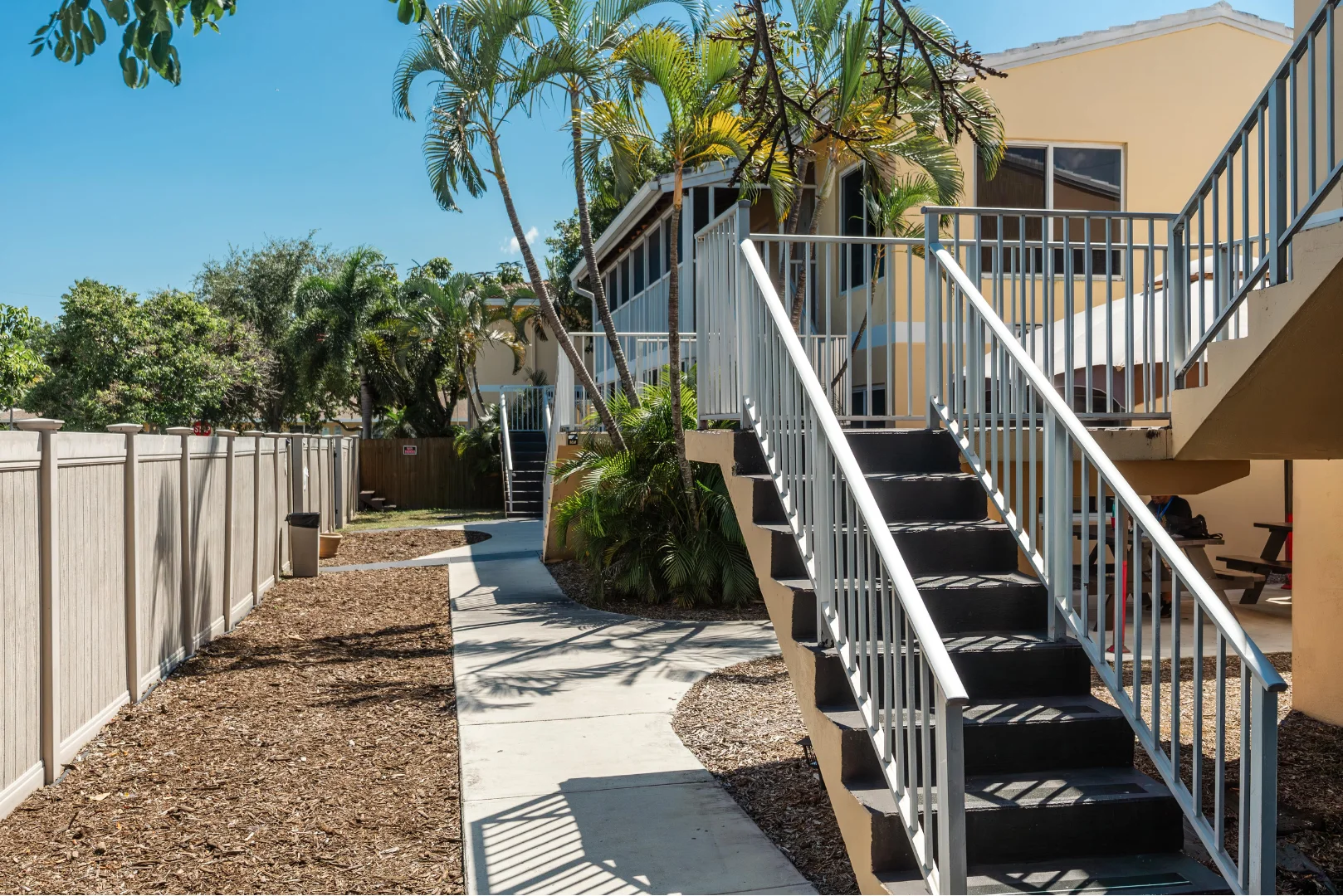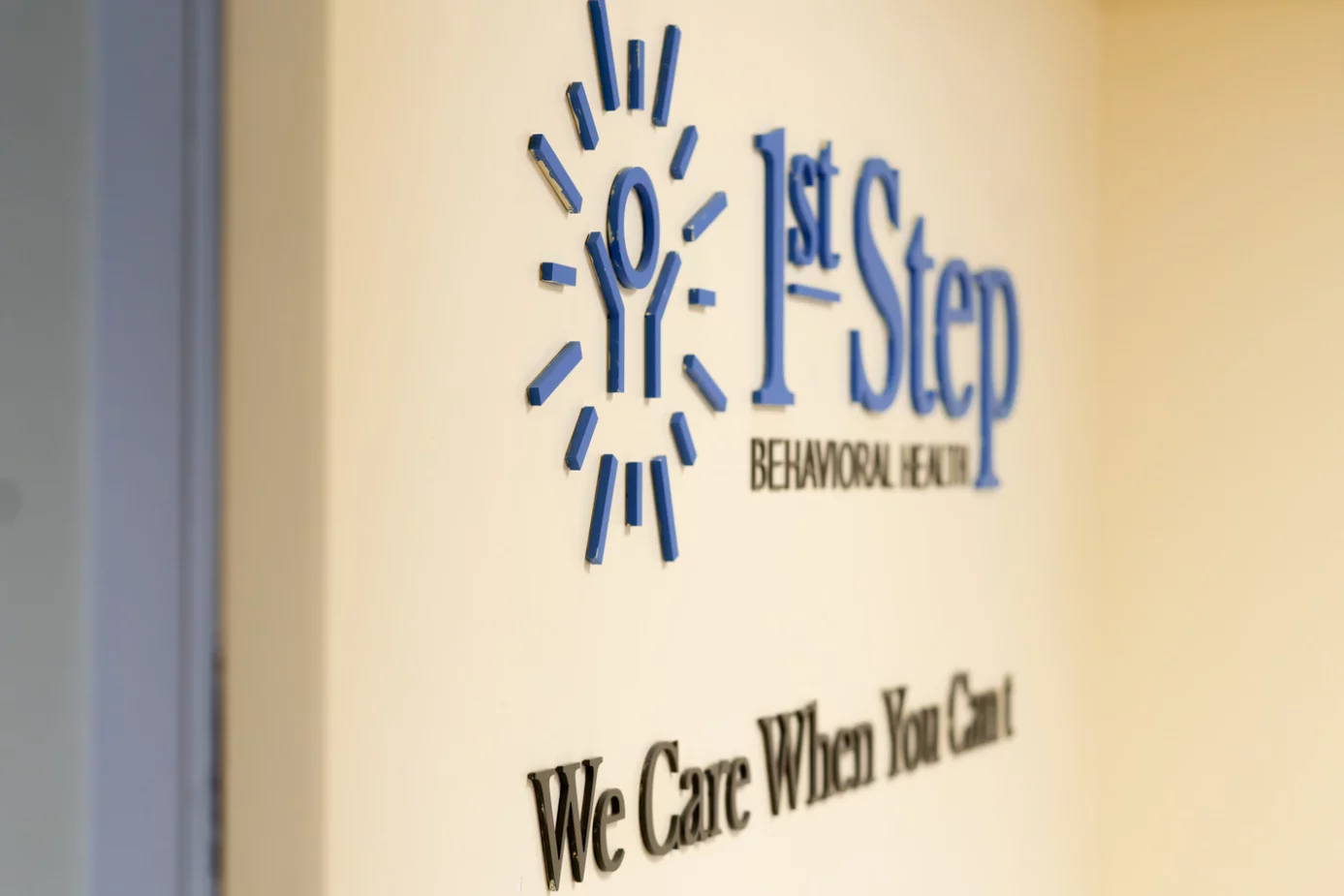Oxycodone Addiction Treatment
At 1st Step Behavioral Health, we offer comprehensive treatment for oxycodone addiction. If you or a loved one is suffering from oxycodone addiction; look no further. Our top priority is to guide you on the road to recovery.


Understanding Oxycodone Abuse and Addiction
Oxycodone is a prescription opioid painkiller that can be prescribed to treat pain. Because a doctor prescribes it, people often think it isn’t as dangerous or addictive as it actually is. The truth is that oxycodone is potent and highly addictive. Oxycodone is the medication found in OxyContin, an opioid medication that contributed to the start of the opioid epidemic. It is the same drug that has caused Purdue Pharma, the manufacturing company, and the Sackler Family, the company’s owners, to have to pay out millions of dollars in lawsuits due to its role in the opioid crisis.
What is Oxycodone?
Oxycodone is a powerful opioid medication used to relieve moderate to severe pain. It is classified as a Schedule II controlled substance in the United States due to its potential for abuse and addiction. Oxycodone works by binding to opioid receptors in the brain and spinal cord, which reduces the perception of pain and alters how the body responds to pain.
Some common brand names for oxycodone include OxyContin, Percocet, and Roxicodone. These medications may contain oxycodone alone or in combination with other substances such as acetaminophen or aspirin to enhance pain relief.
While oxycodone can be highly effective in managing pain, it also carries a significant risk of misuse and addiction. Prolonged use or misuse of oxycodone can lead to physical and psychological dependence. As a result, healthcare providers typically prescribe it cautiously and closely monitor patients who require oxycodone for pain management. Patients are often advised to use it only as prescribed and to avoid sharing it with others or taking it for non-medical reasons.
Oxycodone is available in various forms, including immediate-release and extended-release formulations, and it should only be used under the supervision and guidance of a qualified healthcare professional. If you have questions or concerns about oxycodone or its use, it is essential to consult with a healthcare provider.
Understanding Oxycodone Abuse and Addiction
Oxycodone, also known as “oxy,” produces feelings of euphoria, relaxation, and calmness when it is abused. While people may take this medication for pain, others abuse it illegally to get high or treat unresolved mental health conditions like depression or anxiety. Regardless of the reason for use, oxycodone can be highly addictive.
Oxycodone affects the brain’s reward system, reinforcing the idea of the medication being a reward. This makes people using the drug value it and want to repeat its use. Reward leads to abuse, tolerance, dependence, and full-fledged addiction. All of this happens quickly–so quickly that most people who become addicted are almost surprised by their disease.
Oxycodone addiction can happen even when using the drug as the doctor ordered. Many oxycodone patients keep getting their pills through “doctor shopping” (visiting multiple doctors, sometimes across state lines, to obtain more than one opioid prescription) and buying on the streets. They may turn to other drugs for their high in more severe situations. In fact, people addicted to oxycodone are twelve more likely to turn to heroin, and up to 80% of heroin users were abusing prescription opioids first.
Signs of Oxycodone Addiction
Although the signs of oxycodone addiction may vary, those who are addicted to opioids often display quite a few tell-tale signs. Friends and family are usually the first to recognize that a loved one has a problem.
Common signs of oxycodone addiction include:
- Constipation
- Changed sleep patterns
- Drug-seeking or doctor-shopping
- Lying or stealing
- Changed interests
- Relationship problems
- Legal or financial problems problems
- Poor work or school performance
- Withdrawal symptoms when not using
If an addicted person quits using the drug, they will go through a highly uncomfortable oxycodone withdrawal. Withdrawal is a sure sign that they need rehab treatment and that ending addiction is not as simple as just walking away from the bottle of pills.
For full recovery from addiction to take place, they need formal help and support through a drug detox and treatment center. Otherwise, recovery will be brief, and can lead to deadly relapse.
Oxycodone withdrawal symptoms include:
- Higher pain sensitivity
- Restlessness
- Agitation
- Diarrhea and vomiting
- Sweating
- Shivering
- Sleeplessness
- Cravings
- Body aches
Detoxing at 1st Step’s state-of-the-art Florida detox center can ensure your safety and comfort throughout the process.
Medical Detox for Oxycodone Withdrawal
At 1st Step’s facility, you will have access to a team of experienced medical professionals and addiction specialists who are trained to monitor and manage the detoxification process. They can assess your condition regularly, adjust your treatment plan as needed, and provide immediate medical intervention if any complications arise. This level of professional supervision is crucial for your safety during detox.
At our center, medical professionals monitor patients, helping them eat well, stay hydrated, and get through withdrawal smoothly. These professionals may also prescribe detox medications that can help make withdrawal symptoms more bearable.
After detox is over, clients transition to one of our South Florida oxycodone rehab programs where they learn the skills and resources they need to stay sober. Underlying conditions, such as anxiety, depression, or PTSD, are also treated. Treatment may include inpatient rehab, outpatient rehab, and a variety of therapeutic approaches.
Inpatient Treatment for Oxycodone Addiction in Florida
Inpatient treatment can be extremely beneficial for those dealing with oxycodone addiction. This kind of treatment provides 24/7 medical care and emotional support within our facility as clients reside in semi-private residential housing. During your time here, either you or a loved one will stay at our center for a duration that we agree upon.
Living in an environment focused on overcoming oxycodone addiction has its perks. One significant advantage is being part of a community where everyone shares the same goal of getting better.
We understand that leaving an oxycodone addiction behind isn’t easy, but at 1st Step, we’re dedicated to making the process as smooth as possible for you. We’ve put a lot of thought into how we care for our patients, from our welcoming facilities to group therapy sessions and having medical support readily available. We’ve got everything in place to support you on your journey to recovery.
Outpatient Oxycodone Rehab in Florida
Outpatient rehab covers many of the same aspects of care that inpatient rehab does but in a more flexible manner. This approach is less hands-on, which can be especially beneficial if you or a loved one has significant responsibilities like childcare.
Instead of residing at the facility, patients have the option to live at home while receiving our personalized treatment plan for oxycodone addiction. This way, you or your loved one can return home afterward.
Outpatient rehab is also an excellent choice for individuals who have completed inpatient treatment and want to continue their recovery in a more independent setting. This gradual transition helps individuals ease back into their everyday responsibilities rather than making a sudden shift.
Our programs are designed with flexibility in mind, aiming to make your life easier. We are committed to supporting you on your recovery journey and tailoring our treatment to fit your unique circumstances.

Outpatient Oxycodone Rehab in Florida
Outpatient rehab covers many of the same aspects of care that inpatient rehab does but in a more flexible manner. This approach is less hands-on, which can be especially beneficial if you or a loved one has significant responsibilities like childcare.
Instead of residing at the facility, patients have the option to live at home while receiving our personalized treatment plan for oxycodone addiction. This way, you or your loved one can return home afterward.
Outpatient rehab is also an excellent choice for individuals who have completed inpatient treatment and want to continue their recovery in a more independent setting. This gradual transition helps individuals ease back into their everyday responsibilities rather than making a sudden shift.
Our programs are designed with flexibility in mind, aiming to make your life easier. We are committed to supporting you on your recovery journey and tailoring our treatment to fit your unique circumstances.
Paired Dual Diagnosis and Co-Occurring Disorders Treatment for Oxycodone Addiction
An important aspect of oxycodone addiction treatment is understanding what triggers the urge to use the drug. This can stem from certain emotions to people in one’s environment. Each situation is different and requires a unique approach.
For many, a second mental disorder triggers cravings for oxycodone. This is known as dual diagnosis or a co-occurring disorder.
Some of the most common co-occurring disorders include:
- Depression
- Anxiety disorder
- Post-traumatic stress disorder (PTSD)
- Schizophrenia
- Attention deficit disorder
- Attention deficit hyperactivity disorder (ADHD)
- Bipolar disorder
- Eating disorders
In order to recover from oxycodone addiction, one must address all parts of the issue. Mental health is equally as important as the physical aspect of addiction, so at 1st Step, your physical and mental health is our priority. Our dual-diagnosis treatment program provides individualized treatment for both oxycodone addiction and mental health conditions.

Find Treatment for Oxycodone Addiction in Florida Today
No matter how lost you or a loved one may feel, there is a tremendous amount of potential for a better life. We understand that quitting oxycodone may be overwhelming to think about at the moment, but we promise you that it’s possible. We have a wide range of medical care and therapy to suit a patient’s unique circumstances. Allow us to guide you through the recovery process for oxycodone addiction.
To learn more about our oxycodone addiction treatment program in Pompano Beach, FL, or to get started with a confidential assessment, please reach out to us. Contact us today at (855) 425-4846 for more information.
